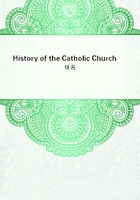
第270章
Henry VIII. died with the knowledge that he had done more than any of his predecessors for the subjugation of Ireland. "The policy that was devised," writes Cusacke, Lord Chancellor of Ireland, "for the sending of the Earls of Desmond, Thomond, Clanrickard, and Tyrone, and the Baron of Upper Ossory, O'Carroll, MacGennis, and others into England, was a great help of bringing those countries to good order; for none of them who went into England committed harm upon the King's Majesty's subjects. The winning of the Earl of Desmond was the winning of the rest of Munster with small charges. The making of O'Brien an Earl made all that country obedient. The making of MacWilliam Earl of Clanrickard made all that country during his time obedient as it is now. The making of MacGillapatrick Baron of Upper Ossory hath made his country obedient; and the having their lands by Dublin is such a gage upon them as they will not forfeit the same through wilful folly."[70]
As far as religion was concerned, however, there was very little change. The Mass was celebrated and the Sacraments were administered as before. Here and there some of the bishops and clergy might have been inclined to temporise on the question of royal supremacy, but whatever documents they might have signed, or whatever appointments they might have accepted from Henry's agents, the vast body of the princes, bishops, clergy, and people had no desire to separate themselves from the universal Church. Henry VIII. had, however, rendered unintentionally an immense service to religion in Ireland by preparing the way for the destruction of royal interference in episcopal and other ecclesiastical appointments and of the terrible abuse of lay patronage that had been the curse of the Catholic Church in Ireland for centuries. All these abuses having been transferred to the small knot of English officials and Anglo-English residents, who coalesced to form the Protestant sect, the Catholic Church was at last free to pursue her peaceful mission without let or hindrance from within.
The accession of Edward VI. made no notable change in Irish affairs.
The Deputy, St. Leger, was retained in office, as were also most of the old officials. Some new members, including George Dowdall, Archbishop of Armagh, were added to the council, and arrangements were made for the collection of the revenues from the suppressed monasteries and religious houses. A royal commission was issued to the Deputy, the Lord Chancellor, and the Bishop of Meath to grant faculties and dispensations in as ample a manner as the Archbishop of Canterbury. From the terms of this commission it is clear that the royal advisers were determined to derive some financial profit from the royal supremacy. The fee for dispensations for solemnising marriage without the proclamation of the banns was fixed at 6s. 8d.
(about ā3 4s.), for marriage within the prohibited times at 10s., for marriage within the prohibited times and without banns at 13s. 4d., and for marriages to be celebrated without the parish church of the contracting parties at 5s.[71] Similarly, an order was sent that the plate and ornaments of St. Patrick's Cathedral should be dispatched by some trustworthy messenger to Bristol, there to be delivered to the treasurer of the mint. This command must not have been carried out completely, because seven months later (Jan. 1548) the Dean of St.
Patrick's was requested to deliver over for the use of the mint the "one thousand ounces of plate of crosses and such like things" that remained in his hands.[72]
From the very beginning of Edward's reign the Protector set himself to overthrow the Catholic Church in Ireland by suppressing the Mass and enforcing the Lutheran or rather the Calvinist teaching regarding Transubstantiation and the Real Presence of Christ in the Eucharist.
The /Injunctions/ of Edward VI. and the /Homilies/ of Cranmer were dispatched for the guidance of the Archbishop of Dublin, and of those who, like him, were supposed to favour religious innovations. In like manner the English Communion service (1548) and the First Book of Common Prayer (1549) were made obligatory in those districts where the English language was spoken or understood. As in England, the great subject of controversy in Ireland during the early years of Edward's reign was the Blessed Eucharist. A Scotch preacher had been sent into Ireland during the year 1548 to prepare the way for the abolition of the Mass by attacking the Real Presence of Christ in the Sacrament of the Altar. The Archbishop of Dublin, who had been noted previously for his radical tendencies, objected to such doctrines, and complaints were forwarded against him to the council. He was charged with having leased or otherwise disposed of the greater portion of the property of his diocese to his children and favourites, with having failed to set forth his Majesty's /Injunctions/ and /Homilies/, with having calumniated the Deputy and held secret communications with the Earl of Desmond and other Irish princes, and with having neglected to preach a single sermon between November 1547 and September 1548, when he took occasion to inveigh against the Scotch preacher who condemned "the abuse of the Bishop of Rome's masses and ceremonies."[73] About the same time the Deputy felt obliged to reprove the Treasurer of Christ's Church for having refused to allow the English Communion Service to be followed in that church, and to warn him of the punishment in store for him if he persisted in his obstinacy.